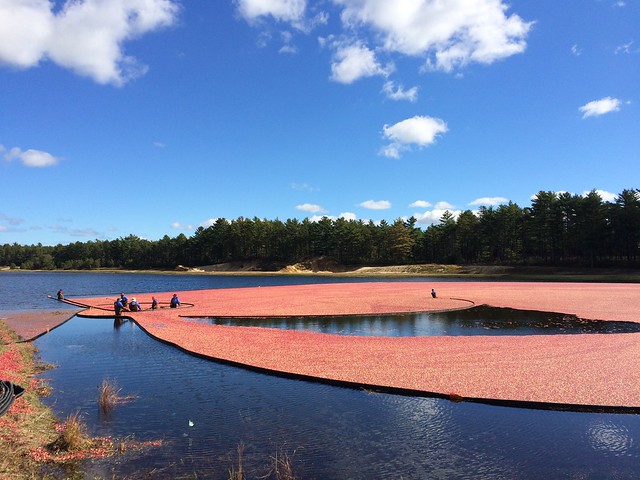
In October, my parents headed to New England for a visit. Since we'd already shown them around Boston (twice, in four parts), we thought the new family outpost on the Cape would be perfect for a long weekend visit. And while they arrived a bit early to enjoy peak fall foliage, the cranberry harvest was in full force.
Saturday morning, we headed to the 12th Annual Cranberry Harvest Celebration at the A.D. Makepeace Company, a founding member of the Ocean Spray grower-owned cooperative (Ocean Spray commercials are, coincidentally, one of my favorite ad campaigns).
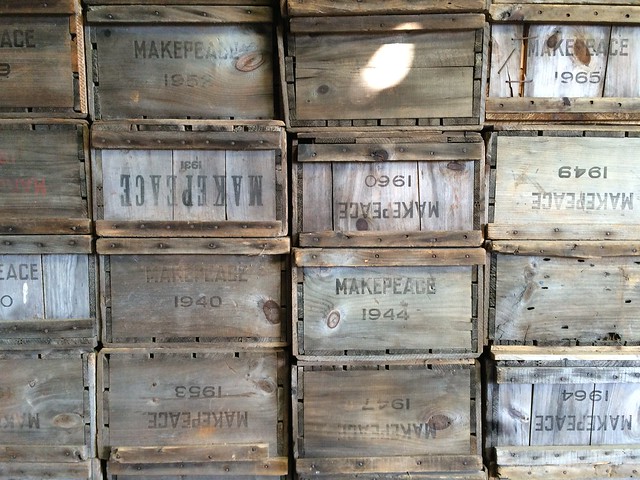
For a small entry fee, visitors could watch the cranberry harvest, shop at a giant cranberry-focused outdoor market (with lots of free samples), and enjoy good food and music. The weather was beautiful, so we slowly meandered our way to the main events: a bridge overlooking the cranberry harvest and tour around the bogs. We hopped on a flatbed trailer with hay bale seating and learned all about cranberry farming.
For most of the year bogs are dry — irregularly shaped depressions in the ground covered in bramble, which look nothing like a quaint New England postcard. In the fall, farmers flood bogs for harvesting, and suddenly they are transformed into those iconic shimmering, ruby red ponds.
Coming from a rural Kansas farming background, we were struck at the similarities between cranberry and wheat harvesting (substituting water for air in the reaping, threshing, and winnowing process). Fun fact: unlike wheat, cranberry vines can live for 100+ years, although the extension agency recommends farmers replace their plants every 15 to 20 years to optimize yields.
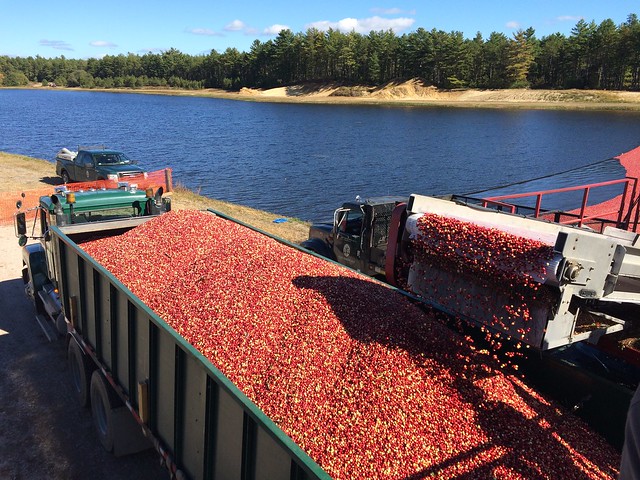
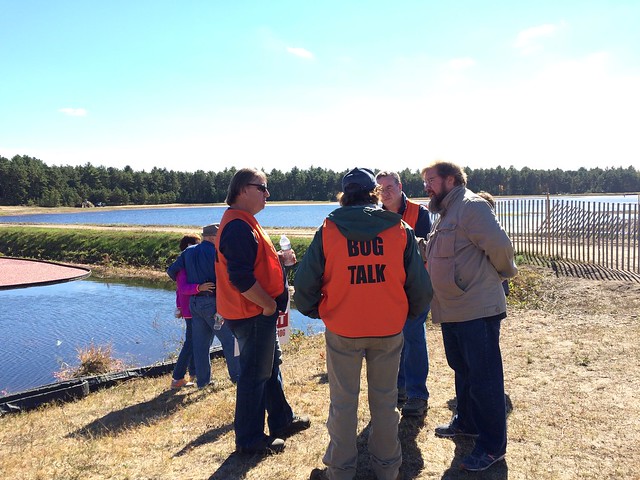
We also learned about the sustainability of Massachusetts cranberry farming. "There are approximately 14,000 acres of cranberry bogs in Massachusetts with cranberry growers maintaining another 60,000 acres of open space serving to protect and recharge watersheds (Cape Cod Cranberry Growers Association)." The undeveloped land surrounding the bogs is integral to the year-round process of cranberry farming, ensuring it's protection for generations to come.
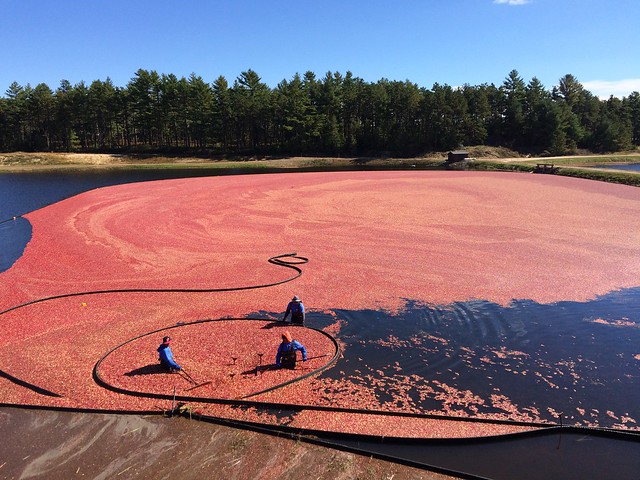
We left with a much greater appreciation for the humble cranberry (and a craving for more cranberry almond chocolate bark).
The rest of our time on the Cape we enjoyed relaxing at home, strolling on the beach, and eating lots of good food. We had so much fun introducing my parents to a place we've come to love, and we're so grateful to Ian's family for hosting us!
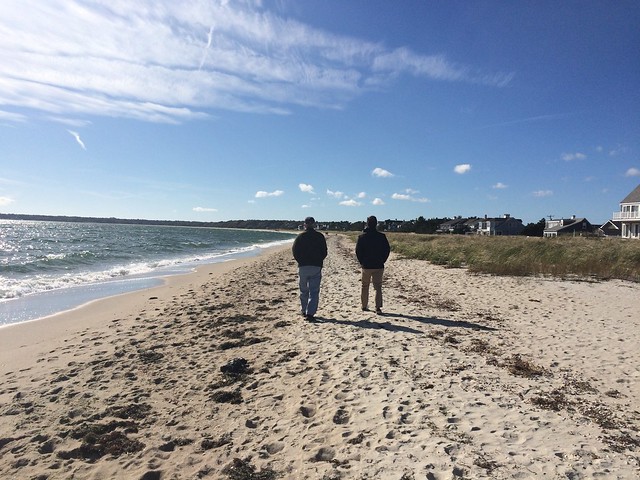
You can see all our photos from the weekend on Flickr.
